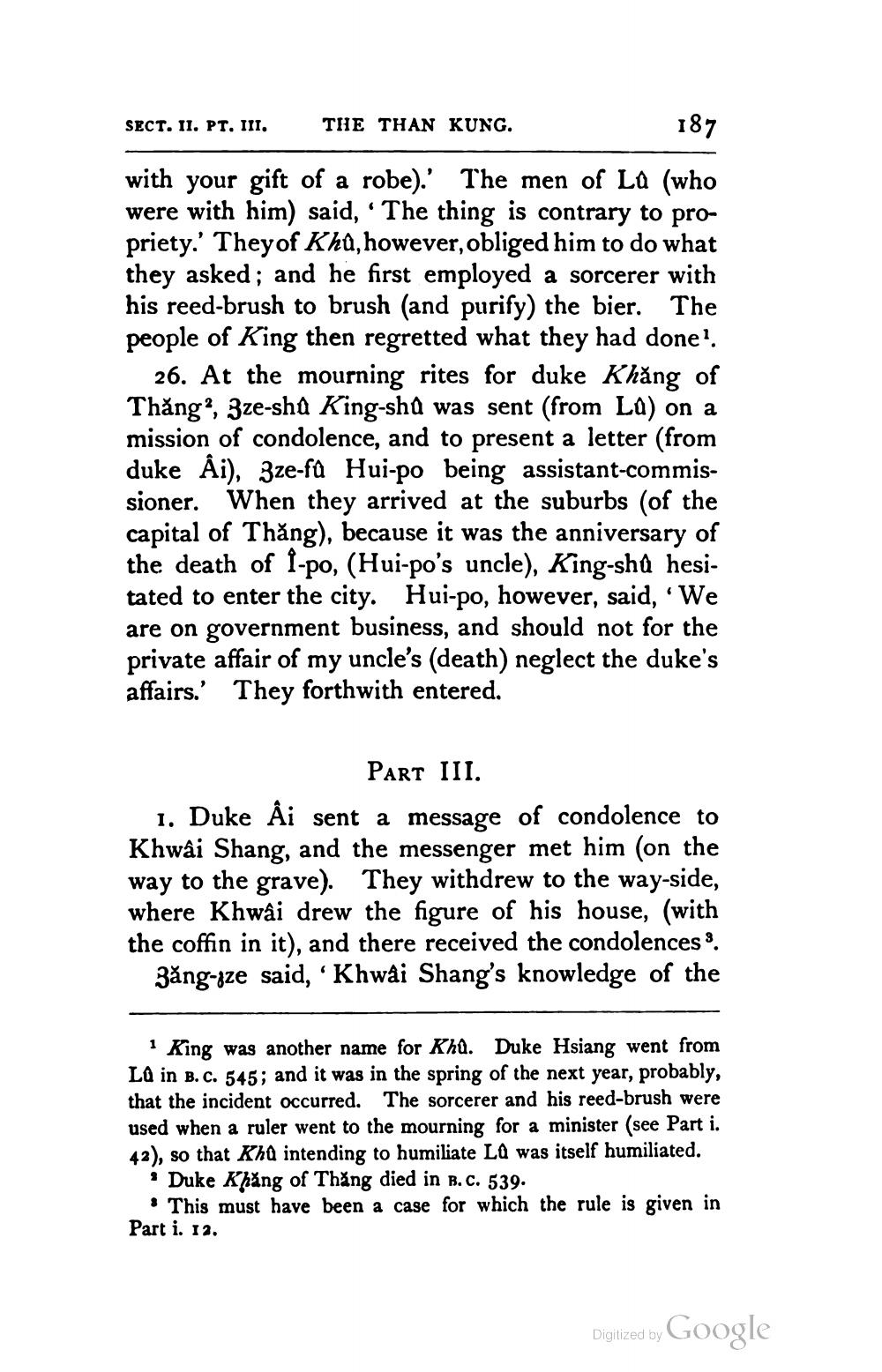________________
187
with your gift of a robe).' The men of Lû (who were with him) said, 'The thing is contrary to propriety.' They of Khû, however, obliged him to do what they asked; and he first employed a sorcerer with his reed-brush to brush (and purify) the bier. The people of King then regretted what they had done1.
SECT. II. PT. III.
THE THAN KUNG.
26. At the mourning rites for duke Khăng of Thăng, 3ze-shû King-shû was sent (from Lû) on a mission of condolence, and to present a letter (from duke Âi), 3ze-fû Hui-po being assistant-commissioner. When they arrived at the suburbs (of the capital of Thăng), because it was the anniversary of the death of I-po, (Hui-po's uncle), King-shû hesitated to enter the city. Hui-po, however, said, 'We are on government business, and should not for the private affair of my uncle's (death) neglect the duke's affairs.' They forthwith entered.
PART III.
1. Duke Âi sent a message of condolence to Khwâi Shang, and the messenger met him (on the way to the grave). They withdrew to the way-side, where Khwâi drew the figure of his house, (with the coffin in it), and there received the condolences 3. 3ăng-ze said, ' Khwai Shang's knowledge of the
1 King was another name for Khû. Duke Hsiang went from Lû in B. c. 545; and it was in the spring of the next year, probably, that the incident occurred. The sorcerer and his reed-brush were used when a ruler went to the mourning for a minister (see Part i. 42), so that Kha intending to humiliate Lû was itself humiliated.
* Duke Khăng of Thăng died in B. C. 539.
This must have been a case for which the rule is given in Part i. 12.
Digitized by
Google




